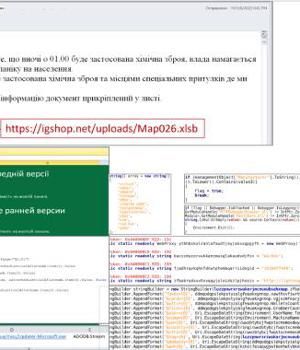Security News > 2022 > May > Ukrainian CERT Warns Citizens of a New Wave of Attacks Distributing Jester Malware

The Computer Emergency Response Team of Ukraine has warned of phishing attacks that deploy an information-stealing malware called Jester Stealer on compromised systems.
The mass email campaign carries the subject line "Chemical attack" and contains a link to a macro-enabled Microsoft Excel file, opening which leads to computers getting infected with Jester Stealer.
Jester Stealer, which was first documented by Cyble in February 2022, comes with features to steal and transmit login credentials, cookies, and credit card information along with data from passwords managers, chat messengers, email clients, crypto wallets, and gaming apps to the attackers.
The Jester Stealer campaign coincides with another phishing attack that CERT-UA has attributed to the Russian nation-state actor tracked as APT28.
The emails, titled "??????????", masquerade as a security notification from CERT-UA and come with a RAR archive file "UkrScanner.rar" attachment that, when opened, deploys a malware called CredoMap v2.
"Unlike prior versions of this stealer malware, this one uses the HTTP protocol for data exfiltration," CERT-UA noted.
News URL
https://thehackernews.com/2022/05/ukrainian-cert-warns-citizens-of-new.html
Related news
- New TCESB Malware Found in Active Attacks Exploiting ESET Security Scanner (source)
- Multi-Stage Malware Attack Uses .JSE and PowerShell to Deploy Agent Tesla and XLoader (source)
- New Android malware steals your credit cards for NFC relay attacks (source)
- Hackers Abuse Russian Bulletproof Host Proton66 for Global Attacks and Malware Delivery (source)
- SuperCard X Android Malware Enables Contactless ATM and PoS Fraud via NFC Relay Attacks (source)
- SK Telecom warns customer USIM data exposed in malware attack (source)
- DslogdRAT Malware Deployed via Ivanti ICS Zero-Day CVE-2025-0282 in Japan Attacks (source)
- Malware Attack Targets World Uyghur Congress Leaders via Trojanized UyghurEdit++ Tool (source)
- Nebulous Mantis Targets NATO-Linked Entities with Multi-Stage Malware Attacks (source)
- Ukrainian extradited to US for Nefilim ransomware attacks (source)